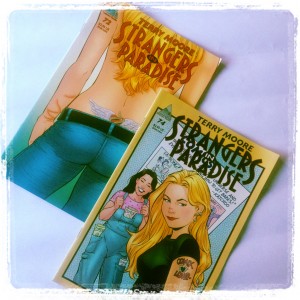So following my recent run in with a year 7 student who informed that comics were for kids, I tried to pick apart what it is about comics that I love so much.
I have read comics for as long as I can remember, starting with the Beano (but never Dandy, I had my opinions even then!), then moving onto Eagle and Tiger and 2000AD. From there I discovered Silver Surfer, still one of my faves to this day and of course, then went to explore the Marvel universe. This was followed with everything else that I could lay my hands on.
What interests me is that while Sandman may have had a more emotional and profound effect on me than the Infinity Crisis, or Death of Superman, I gain as much enjoyment from reading either. There’s just something about the actual format that brings me great pleasure.
I think that I like being able to see characters, have an image presented to me. Despite my love of reading I still don’t necessarily build pictures in my head in the way that other people seem to. When there are particularly vivid descriptions, I will, but otherwise I have more of a sense about a character, rather than an image of them. Comics enable me to have the picture and the story.
I also love the artwork, and the atmosphere that it gives the comic, be it the glorious black and white pop art of Love and Rockets, the naturalism of Strangers in Paradise, or the hyper stylised world of Marvel and DC.
I love that whilst the comic comes from the writers’ head, it is brought into being by the artist. This synergy is for me what makes comics so unique as an art form.




